With his keen hearing, a dog named Gunner detected Japanese planes from a distance of more than 160 km, helping the Australian Air Force protect the city of Darwin.
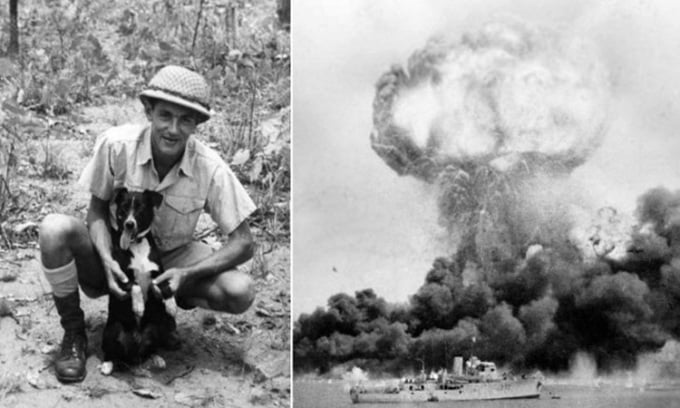
Percy Westcott and Gunner on the left. Photo: Amusing Planet
Throughout history, dogs have consistently held a unique place in warfare, serving in a variety of roles such as tracking enemy troops, detecting weapons and explosives, patrolling or delivering mail, and even detecting bombing raids from afar thanks to their keen hearing, as in the case of Gunner, according to Amusing Planet .
On February 19, 1942, the city of Darwin in the Northern Territory of Australia was the target of Japanese air raids. Japanese pilots targeted ships in Darbin Harbor and the Royal Australian Air Force airfield in an effort to deny Allied forces access to the base and impede their invasion of Timor and Java during World War II. All that remained of the destruction were the wreckage of a light bomber and a frightened black-and-white kelpie with a broken leg.
Airman Percy Westcott found the dog under a ruined hut at the air base. Westcott rescued the dog and took it to the field hospital. There, the medical staff insisted they couldn’t treat a patient without a name and number. Westcott and his friends quickly registered the dog and named him Gunner. That way, the doctor could examine him and put a cast on his leg. Within days, Gunner was happily hobbling around the camp.
Gunner quickly developed a keen sense of hearing. He could hear the sound of a chef’s knife hitting steel as they prepared to cut meat. He could hear planes approaching from over 100 miles away. The Japanese continued to return to Darwin regularly. Each time before an air raid, Westcott and his friends noticed Gunner becoming agitated, starting to moan and jump around. At the time, radar technology was rudimentary. Gunner’s alarms often preceded the official siren by 20 minutes, enough time for fighter planes to be deployed.
Gunner's hearing was so precise that he could distinguish between the engine noises of Allied and Japanese aircraft, and only became agitated when enemy aircraft were close. Gunner was so reliable that the army commander gave Westcott a portable air raid whistle to relay Gunner's warnings to the base. Only twice was Gunner missed by an early warning because the enemy quickly returned from a previous attack.
Gunner became an indispensable member of the air force. He slept under Westcott's bunk, bathed with the soldiers, sat with them at the open-air cinema and accompanied the pilots on take-off and landing training. Fifteen months later, Westcott was transferred south while Gunner remained in Darwin. No one knows what happened to him after that. "I never found out what happened to him," Westcott said. "I thought I would come back after the war or meet someone I knew, but I didn't."
An Khang (According to Amusing Planet )
Source link




![[Photo] Hanoi morning of October 1: Prolonged flooding, people wade to work](https://vphoto.vietnam.vn/thumb/1200x675/vietnam/resource/IMAGE/2025/10/1/189be28938e3493fa26b2938efa2059e)















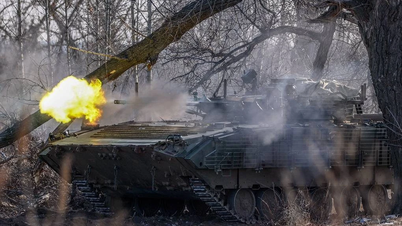














![[Photo] The 1st Congress of Phu Tho Provincial Party Committee, term 2025-2030](https://vphoto.vietnam.vn/thumb/1200x675/vietnam/resource/IMAGE/2025/9/30/1507da06216649bba8a1ce6251816820)
![[Photo] Panorama of the cable-stayed bridge, the final bottleneck of the Ben Luc-Long Thanh expressway](https://vphoto.vietnam.vn/thumb/1200x675/vietnam/resource/IMAGE/2025/9/30/391fdf21025541d6b2f092e49a17243f)
![[Photo] President Luong Cuong receives President of the Cuban National Assembly Esteban Lazo Hernandez](https://vphoto.vietnam.vn/thumb/1200x675/vietnam/resource/IMAGE/2025/9/30/4d38932911c24f6ea1936252bd5427fa)
































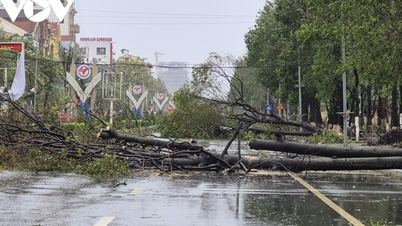

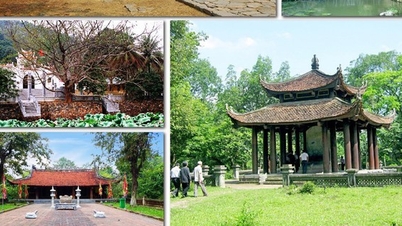






![[Megastory] A term of creation: An Giang rises from historical imprints](https://vphoto.vietnam.vn/thumb/402x226/vietnam/resource/IMAGE/2025/10/1/2660ab96e53f4270bcc37f8d39c36c78)



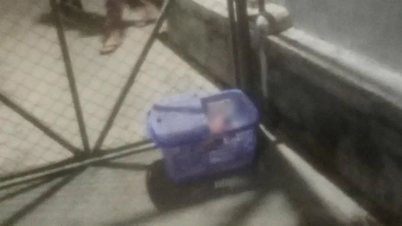















Comment (0)